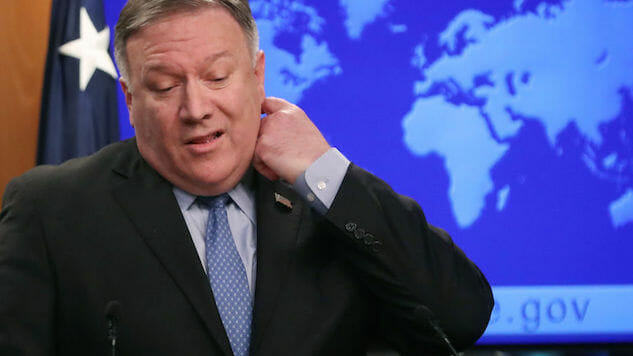Japanese Tanker Operator Denies Being Hit By Iranian Mines, Blames “Flying Objects”
Photo courtesy of Getty
Earlier today, we wrote about the enormous push for war with Iran coming from the White House, and particularly the hawkish team of John Bolton and Mike Pompeo. The latest escalation comes after two tankers were attacked with explosive devices in the Gulf of Oman, and the U.S. immediately pointed the finger at Iran (Iran denies involvement). One big piece of evidence came from video footage of a boat seemingly removing a mine. Per the NYT:
The most compelling evidence to support Mr. Pompeo’s claim was video footage released Thursday night by the United States Central Command. A military spokesman, Capt. Bill Urban, said the video showed an Islamic Revolutionary Guards Corps patrol boat pulling up alongside the Kokuka Courageous, one of the stricken ships, several hours after the initial explosion, and removing an unexploded limpet mine in broad daylight.
However, the Japanese operator is now saying that no mines were involved at all.
One of the tankers that were attacked in the Gulf of Oman was struck by a flying object, the ship’s Japanese operator said on Friday, expressing doubt that a mine had been attached to its hull…
…Yutaka Katada, the company’s president, citing accounts from the ship’s crew, said Friday: “I do not think there was a time bomb or an object attached to the side of the ship.”
-

-

-

-

-

-

-

-

-

-

-

-

-

-

-

-

-

-

-

-

-

-

-

-

-

-

-

-

-

-

-

-

-

-

-

-

-

-

-

-








































